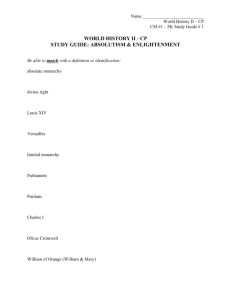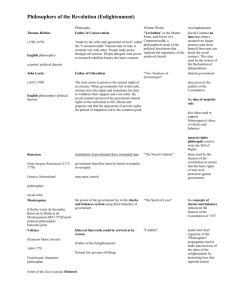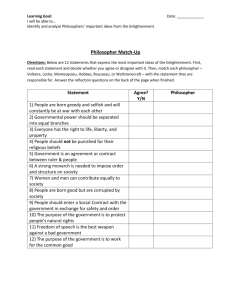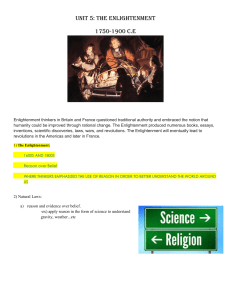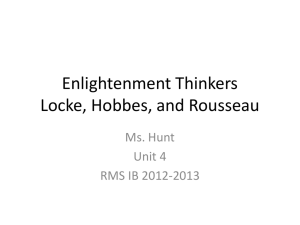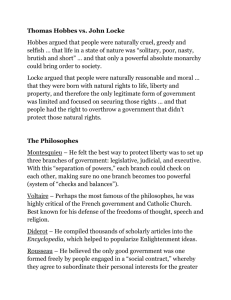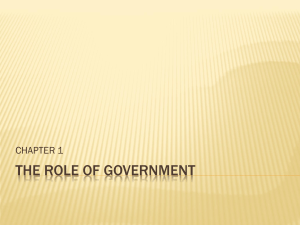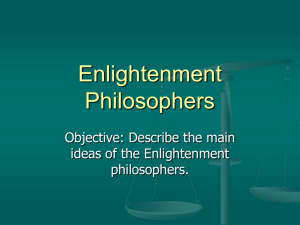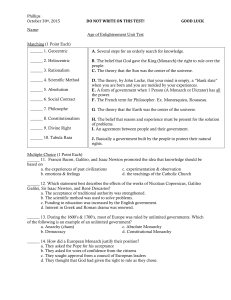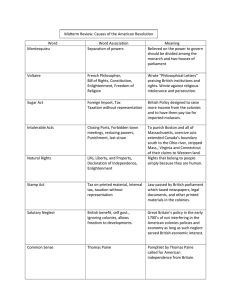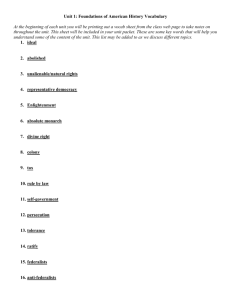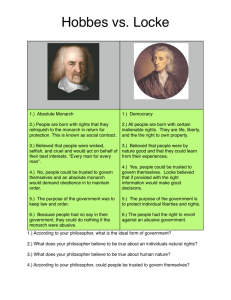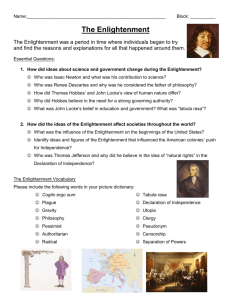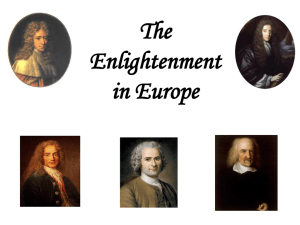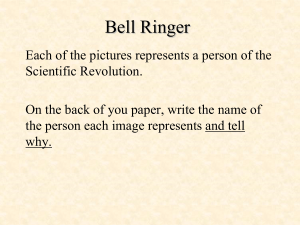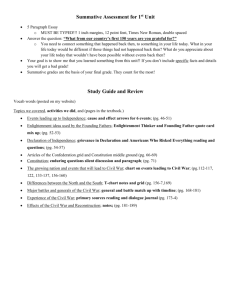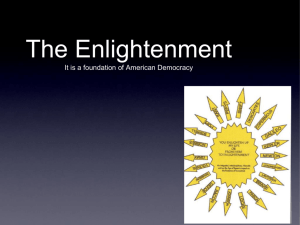Judaism, Islam and Christianity share a belief in
advertisement
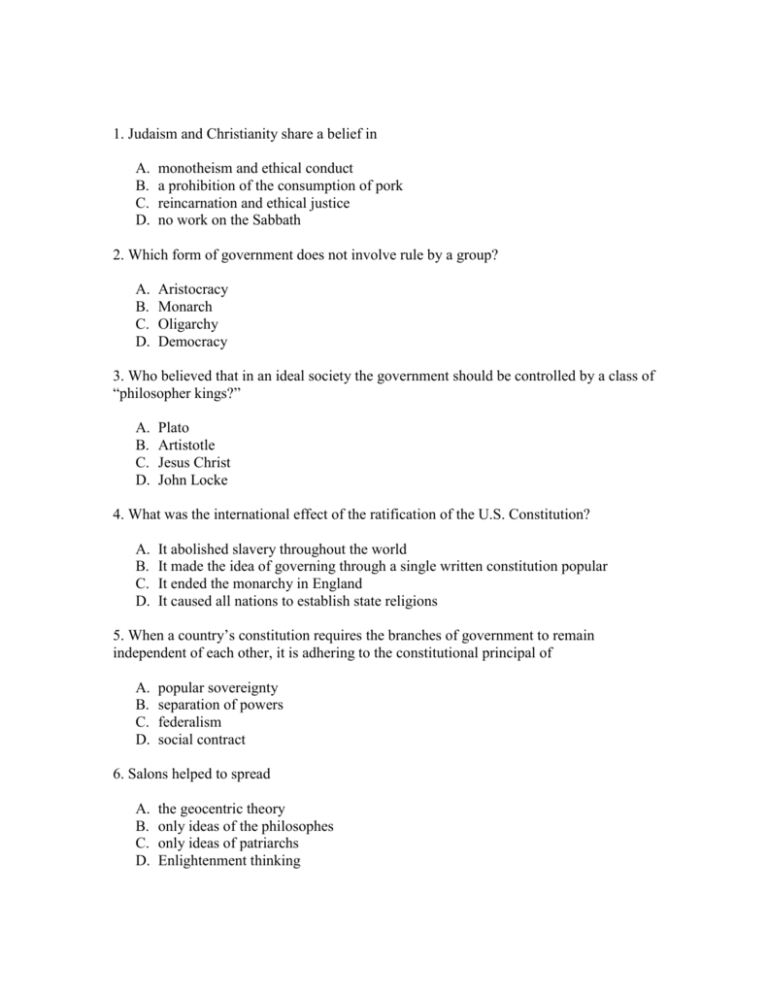
1. Judaism and Christianity share a belief in A. B. C. D. monotheism and ethical conduct a prohibition of the consumption of pork reincarnation and ethical justice no work on the Sabbath 2. Which form of government does not involve rule by a group? A. B. C. D. Aristocracy Monarch Oligarchy Democracy 3. Who believed that in an ideal society the government should be controlled by a class of “philosopher kings?” A. B. C. D. Plato Artistotle Jesus Christ John Locke 4. What was the international effect of the ratification of the U.S. Constitution? A. B. C. D. It abolished slavery throughout the world It made the idea of governing through a single written constitution popular It ended the monarchy in England It caused all nations to establish state religions 5. When a country’s constitution requires the branches of government to remain independent of each other, it is adhering to the constitutional principal of A. B. C. D. popular sovereignty separation of powers federalism social contract 6. Salons helped to spread A. B. C. D. the geocentric theory only ideas of the philosophes only ideas of patriarchs Enlightenment thinking 7. The Enlightenment philosopher John Locke argued that life, liberty and property are A. B. C. D. economic rights earned in a capitalistic system social rights guaranteed by the ruling class natural rights that should be protected by government political rights to be granted as determined by law 8. In English history, the Magna Carta, the Petition of Right and the Bill of Rights, all reinforced the concept of A. B. C. D. Universal suffrage Religious toleration A limited monarchy A laissez-faire economy 9. What is the significance of the Magna Carta? A. B. C. D. It approved money for wars in France It asserted that the monarch must obey the law It allowed the monarch to abolish Parliament It limited the power of the English church 10. The U.S. Constitution divided power between the national government and states as a A. B. C. D. Direct democracy Limited monarchy Aristocracy Federal republic 11. America’s Founding Fathers borrowed the idea of separation of powers for the three branches of government from whom? A. B. C. D. Jean-Jacques Rousseau John Locke Baron de Montesquieu Thomas Hobbes 12. During the Enlightenment period this popular art form was introduced A. B. C. D. Baroque Rococo Spumoni Oil on canvas 13. The English Bill of Rights added all of the following rights except A. B. C. D. No cruel punishment No excessive bail or fines No excessive taxes The right to bear arms 14. Thomas Jefferson’s belief that all government power should come from the people is referred to as A. B. C. D. Natural law Natural rights Common law Popular sovereignty 15. German philosopher who coined the term “Enlightenment” A. B. C. D. Thomas Hobbes Voltaire Denis Diderot Immanuel Kant 16. The idea that people are born with certain rights from birth including the rights to life, liberty and property A. B. C. D. Civil rights Natural rights Appellate rights Judicial rights 17. The Roman Emperor set up a commission to collect, revise and organize all laws which eventually became a body of civil law, also referred to as A. B. C. D. Law of the 12 Tablets Common Law Justinian’s Code Moral Law 18. Rousseau’s idea that only government’s that have been freely elected should be able to impose some controls on people’s behavior A. B. C. D. Moral law Social contract Popular sovereignty Common law 19. The Scientific Revolution’s idea that rules are discoverable by reason A. B. C. D. Natural Law Natural Rights Common Law Reasonable Law 20. The Enlightenment was a result of the A. B. C. D. Scientific Revolution Reformation Diaspora Feudalism 21. Western society embodies this was of thinking A. B. C. D. Eastern philosophies Judeo-Christian tradition Orthodoxy Romanticism 22. Monarchs who accepted some social and legal changes recommended by the philosophes were referred to as A. B. C. D. Absolute monarchs Direct democracies Enlightened despots Physiocrats
